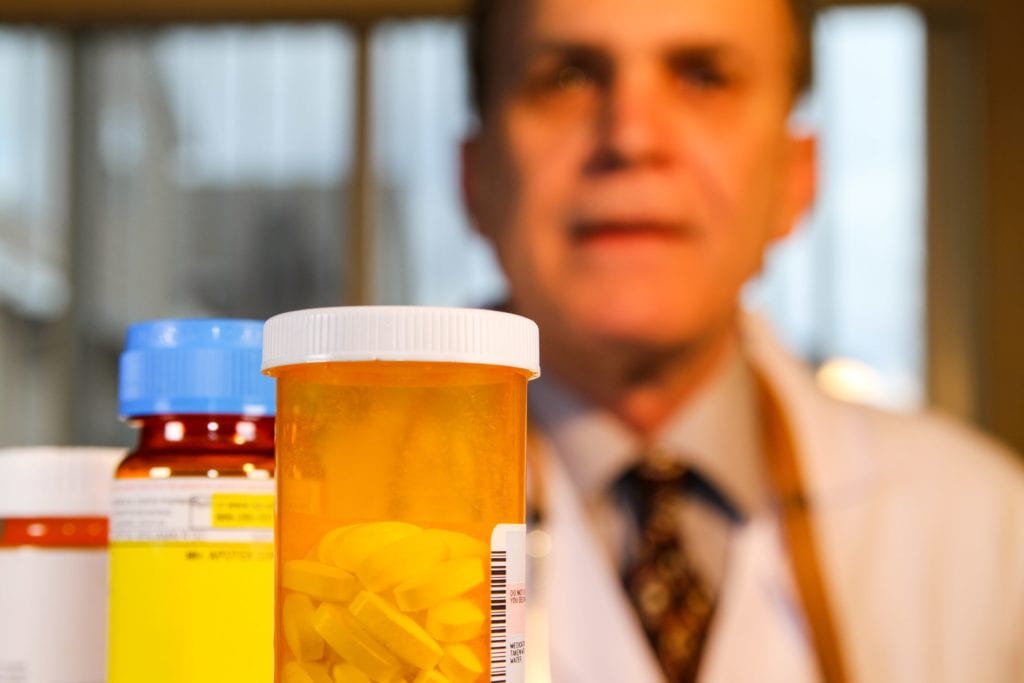What Do We Know About the Opioid Crisis and MAT?
According to the National Institute on Drug Abuse, more than 130 people in the United States die after overdosing on opioids. The misuse of, and addiction to, opioids—including prescription pain relievers, heroin, and synthetic opioids such as fentanyl—is a serious national crisis that affects public health as well as social and economic welfare. The Centers for Disease Control and Prevention estimates that the total “economic burden” of prescription opioid misuse alone in the United States is $78.5 billion a year, including the costs of healthcare, lost productivity, addiction treatment, and criminal justice involvement. The opioid crisis and MAT go hand-in-hand as an effort to help slow and stop this epidemic while giving patients the comfortable treatment they need to overcome addiction.
What is MAT?
According to the Substance Abuse and Mental Health Services Administration (SAMHSA), Medication Assisted Treatment (also known as MAT) is the use of medications with counseling and behavioral therapies to treat substance use disorders and prevent opioid overdose. While MAT is primarily used for the treatment of addiction to opioids, it can be used to help treat the withdrawal symptoms for most drugs and alcohol. These medications include Vivitrol, Naltrexone, and Methadone.
The Link Between the Opioid Crisis and MAT
It is so easy to become addicted to prescription medication. Whether someone sustained a painful injury, had surgery or is going through chemotherapy, addictive opioid medications will be prescribed to help alleviate the pain. Opioids bind to pain receptors, essentially cutting off the communication between the pain point and the brain. Instead of the brain receiving messages from the pain point, the pain point is silenced. This provides a much-needed relief from patients who are experiencing chronic pain, which makes opioids a very helpful tool.
As helpful as opioids can be for patients experiencing chronic pain, they are also highly addictive. Even the most well-intentioned user of prescription opioid medications may fall into addiction. That is why it is very important to take opioid medications under the supervision of medical professionals. As such, medical professionals never have their patients stop taking opioids cold turkey. The patients are always slowly weaned off, and that is why MAT is so important in opioid addiction recovery.
Roughly 21 to 29 percent of patients prescribed opioids for chronic pain misuse them, and about 80 percent of people who use heroin first misused prescription opioids. It is so easy for people to develop an addiction, and for it to snowball into a larger drug abuse issue. It is important to pay attention to the signs of addiction. If you are taking more than you were prescribed, if you have multiple prescriptions at multiple pharmacies, multiple doctors to give you prescriptions, or are hiding or lying about your drug use, you are addicted to opioids.
How MAT Helps in Opioid Recovery
One of the scariest parts of entering treatment for opioid addiction is the detox process. Chances are, most people who enter treatment have experienced dope sickness, or the pain they feel when they do not take opioids for a period of time. This sickness is caused by the body’s chemical dependency on opioids. Since such a high volume of opioids is being supplied to the body by substance abuse, the body stops producing its own. Essentially, the body’s realization that it now needs to produce its own opioids and dopamine again is an adjustment process that has some painful withdrawal symptoms along the way.
With MAT, the body is allowed to slowly readjust while still being provided a smaller amount opioids. While the opioids are being slowly tapered off, the body is able to start reproducing its own opioids and withdrawal symptoms are much less intense, if felt at all.
Withdrawal Symptoms
Some of the withdrawal symptoms someone may feel during detox, that MAT can help treat, includes:
- Diarrhea
- Vomiting
- Nausea
- Muscle aches
- Restlessness
- Insomnia
- Sweating
- Anxiety
- Depression
- Abdominal cramps
- Increased heart rate
- Excessive yawning
- Shivers
- Tremors
About Pinelands Recovery Center
Overcoming drug addiction is a difficult obstacle. It takes a lot of courage and determination to finally decide to enter treatment, and even more bravery to commit to it. We understand that entering treatment can be scary and difficult, even though it is the best choice you can make in your life. That is why we proudly offer MAT options to all people who enter Pinelands. We want you to be as comfortable as possible and experience as little withdrawal symptoms as possible. Having the peace of mind that you won’t be doubled over with debilitating withdrawal symptoms gives many people comfort and can make all the difference in focusing on their long-term recovery.
Pinelands Recovery Center of Medford is widely known as one of New Jersey’s finest, most respected addiction treatment facilities. With comfortable 30-bed accommodations and 24-hour professional staff, we can offer clients a serene, relaxing environment amid the lush piney woods. This stress-free setting with its sense of warmth and welcoming enables you to feel comfortable and confident about your clean and sober life ahead.
We will establish clear goals, both general in nature and specific to your needs. In addition, we continue to monitor those goals, to make sure that our clients are progressing and buying into their recovery plan. We thrive on assisting clients in feeling connected to the recovery community, share and demonstrate effective coping techniques, help clients to modify attitudes and patterns of behavior and everything else you will need to be happy and productive living a sober, healthy life.
We ensure that clients complete their planned concrete tasks, encourage hope, optimism and healthy living. Our recovery program is not a revolving door treatment program; it is a recovery model designed to help clients go on to lead productive, happy lives. For more information, visit pinelandsrecovery.com
